- Home
- Frank Herbert
Eye Page 16
Eye Read online
Page 16
Francine broke off. She felt that she had just awakened from a lifelong daze, but that this clarity of thought-cum-action was a delicate thing she could lose in the wink of an eye.
"We did what we had to do," said the voice. "You see our five representatives there?"
Francine focused on the slump-shouldered Galactics. They looked defeated, radiating sadness. The gaping door of the ship a few paces behind was like a mouth ready to swallow them.
"Those five are among the eight hundred survivors of a race that once numbered six billion," said the voice.
Francine felt Ohashi move up beside her, glanced sidelong at him, then back to the Galactics. Behind her, she heard a low mumbling murmur of many voices. The slow beginning of reaction to her emotional outburst made her sway. A sob caught in her throat.
The voice from the ship rolled on: "This once great race did not realize the importance of unmistakable communication. They entered space in that sick condition—hating, fearing, fighting. There was appalling bloodshed on their side and— ours—before we could subdue them."
A scuffing sound intruded as the five green-skinned figures shuffled forward. They were trembling, and Francine saw glistening drops of wetness below their crests. Their eyes blinked. She sensed the aura of sadness about them, and new tears welled in her eyes.
"The eight hundred survivors—to atone for the errors of their race and to earn the right of further survival—developed a new language," said the voice from the ship. "It is, perhaps, the ultimate language. They have made themselves the masters of all languages to serve as our interpreters." There was a long pause, then: "Think very carefully, Mrs. Millar. Do you know why they are our interpreters?"
The held breath of silence hung over them. Francine swallowed past the thick tightness in her throat. This was the moment that could spell the end of the human race, or could open new doors for them—and she knew it.
"Because they cannot lie," she husked.
"Then you have truly learned," said the voice. "My original purpose in coming down here just now was to direct the sterilization of your planet. We thought that your military preparations were a final evidence of your failure. We see now that this was merely the abortive desperation of a minority. We have acted in haste. Our apologies."
The green-skinned Galactics shuffled forward, stopped two paces from Francine. Their ridged crests drooped, shoulders sagged.
"Slay us," croaked one. His eyes turned toward the dead men on the sand around them.
Francine took a deep, shuddering breath, wiped at her damp eyes. Again she felt the bottomless sense of futility. "Did it have to be this way?" she whispered.
The voice from the ship answered: "Better this than a sterile planet—the complete destruction of your race. Do not blame our interpreters. If a race can learn to communicate, it can be saved. Your race can be saved. First we had to make certain you held the potential. There will be pain in the new ways, no doubt. Many still will try to fight us, but you have not yet erupted fully into space where it would be more difficult to control your course."
"Why couldn't you have just picked some of us, tested a few of us?" she demanded. "Why did you put this terrible pressure on the entire world?"
"What if we had picked the wrong ones?" asked the voice. "How could we be certain with a strange race such as yours that we had a fair sampling of your highest potential? No. All of you had to have the opportunity to learn of our problem. The pressure was to be certain that your own people chose their best representatives."
Francine thought of the unimaginative rule-book followers who had led the teams. She felt hysteria close to the surface.
So dose. So hellishly close!
Ohashi spoke softly beside her: "Francine?"
It was a calming voice that subdued the hysteria. She nodded. A feeling of relief struggled for recognition within her, but it had not penetrated all nerve channels. She felt her hands twitching.
Ohashi said: "They are speaking English with you. What of their language that we were supposed to solve?"
"We leaped to a wrong conclusion, Hiko," she said. "We were asked to communicate. We were supposed to remember our own language—the language we knew in childhood, and that was slowly lost to us through the elevation of reason."
"Ahhhhh," sighed Ohashi.
All anger drained from her now, and she spoke with sadness. "We raised the power of reason, the power of manipulating words, above all other faculties. The written word became our god. We forgot that before words there were actions—that there have always been things beyond words. We forgot that the spoken word preceded the written one. We forgot that the written forms of our letters came from ideographic pictures— that standing behind every letter is an image like an ancient ghost. The image stands for natural movements of the body or of other living things."
"The dances," whispered Ohashi.
"Yes, the dances," she said. "The primitive dances did not forget. And the body did not forget—not really." She lifted her hands, looked at them. "I am my own past. Every incident that ever happened to every ancestor of mine is accumulated within me." She turned, faced Ohashi.
He frowned. "Memory stops at the beginning of your..."
"And the body remembers beyond," she said. "It's a different kind of memory: encysted in an overlay of trained responses like the thing we call language. We have to look back to our childhood because all children are primitives. Every cell of a child knows the language of emotional movements—the clutching reflexes, the wails and contortions, the sensuous twistings, the gentle reassurances."
"And you say these people cannot lie," murmured Ohashi.
Francine felt the upsurge of happiness. It was still tainted by the death around her and the pain she knew was yet to come for her people, but the glow was there expanding. "The body," she said, and shook her head at the scowl of puzzlement on Ohashi's face. "The intellect..." She broke off, aware that Ohashi had not yet made the complete transition to the new way of communicating, that she was still most likely the only member of her race even aware of the vision of this high plateau of being.
Ohashi shook his head, and sunlight flashed on his glasses.
"I'm trying to understand," he said.
"I know you are," she said. "Hiko, all of our Earth languages have a bias toward insanity because they split off the concept of intellect from the concept of body. That's an oversimplification, but it will do for now. You get fragmentation this way, you see? Schizophrenia. These people now—" She gestured toward the silent Galactics. "—they have reunited body and intellect in their communication. A gestalten thing that requires the total being's participation. They cannot lie because that would be to lie to themselves—and this would completely inhibit speech." She shook her head. "Speech is not the word, but it is the only word we have now."
"A paradox," said Ohashi.
She nodded. "The self that is one cannot lie to the self. When body and intellect say the same thing...that is truth. When words and wordlessness agree... that is truth. You see?"
Ohashi stood frozen before her, eyes glistening behind the thick lenses. He opened his mouth, closed it, then bowed his head. In that moment he was the complete Oriental and Francine felt that she could look through him at all of his ancestry, seeing and understanding every culture and every person that had built to the point of the pyramid here in one person: Hiko Ohashi.
"I see it," he murmured. "It was example they showed. Not words to decipher. Only example for recognition, to touch our memories and call them forth. What great teachers! What great masters of being!"
One of the Galactics stepped closer, gestured toward the area behind Francine. His movements and the intent were clear to her, interpreted through her new understanding.
The Galactic's wide lips moved. "You are being recorded," he said. "It would be an opportune moment to begin the education of your people—since all new things must have a point of birth."
She nodded, steeling herself before turn
ing. Even with the pain of birth, she thought. This was the moment that would precipitate the avalanche of change. Without knowing precisely how she would set off this chain reaction, she had no doubt that she would do it. Slowly, she turned, saw the movie cameras, the television lenses, the cone microphones all directed at her. People were pressed up against an invisible wall that drew an arc around the ship's entrance and this charmed circle where she stood. Part of the ship's defenses, she thought. A force field to stop intruders.
A muted murmuring came from the wall of people.
Francine stepped toward them, saw the lenses and microphones adjust. She focused on angry faces beyond the force field—and faces with fear—and faces with nothing but a terrible awe. In the foreground, well within the field, lay Zakheim's body, one hand outstretched and almost pointing at her. Silently, she dedicated this moment to him.
"Listen to me very carefully," she said. "But more important, see beyond my words to the place where words cannot penetrate." She felt her body begin to tingle with a sudden release of energy. Briefly, she raised herself onto her toes. "If you see the truth of my message, if you see through to this place that I show you, then you will enter a higher order of existence: happier, sadder. Everything will take on more depth. You will feel more of all the things there are in this universe for us to feel."
Her new-found knowledge was like a shoring up within, a bottomless well of strength.
"All the window widows of all the lonely homes of Earth am I," she said. And she bent forward. It was suddenly not Dr. Francine Millar, psychologist, there on the sand. By the power of mimesis, she projected the figure of a woman in a housedress leaning on a windowsill, staring hopelessly into an empty future.
"And all the happy innocence seeking pain."
Again, she moved: the years peeled away from her. And now, she picked up a subtle rhythm of words and movements that made experienced actors cry with envy when they saw the films.
"Nature building Nature's thunder am I," she chanted, her body swaying.
"Red roses budding
"And the trout thudding water
"And the moon pounding out stars
"On an ocean wake—
"All these am I!
"A fast hurling motion am I!
"What you think I am—that I am not!
"Dreams tell your senses all my names:
"Not harshly loud or suddenly neglectful, sarcastic, preoccupied or rebukeful—
"But murmuring.
"You abandoned a twelve-hour day for a twelve-hour night "To meddle carefully with eternity!
"Then you realize the cutting hesitancy "That prepares a star for wishing...
"When you see my proper image—
"A candle flickering am I.
"Then you will feel the lonely intercourse of the stars. "Remember! Remember! Remember!"
THE TACTFUL SABOTEUR
Better men than you have tried!" snarled Clinton Watt.
"I quote paragraph four, section ninety - one of the Semantic Revision to the Constitution," said saboteur extraordinary Joij X. McKie. "The need for obstructive processes in government having been established as one of the chief safeguards for human rights, the question of immunities must be defined with extreme precision.'"
McKie sat across a glistening desk from the Intergalactic Government's Secretary of Sabotage, Clinton Watt. An air of tension filled the green-walled office, carrying over into the screenview behind Watt, which showed an expanse of the System Government's compound and people scurrying about their morning business with a sense of urgency.
Watt, a small man who appeared to crackle with suppressed energy, passed a hand across his shaven head. "All right," he said in a suddenly tired voice. "This is the only Secretariat of government that's never immune from sabotage. You've satisfied the legalities by quoting the law. Now, do your damnedest!"
McKie, whose bulk and fat features usually gave him the appearance of a grandfatherly toad, glowered like a gnome- dragon. His mane of red hair appeared to dance with inner flame.
"Damnedest!" he snapped. "You think I came in here to try to unseat you? You think that?"
And McKie thought: Let's hope he thinks that!
"Stop the act, McKie!" Watt said. "We both know you're eligible for this chair." He patted the arm of his chair. "And we both know the only way you can eliminate me and qualify yourself for the appointment is to overcome me with a masterful sabotage. Well, McKie, I've sat here more than eighteen years. Another five months and it'll be a new record. Do your damnedest. I'm waiting."
"I came in here for only one reason" McKie said. "I want to report on the search for saboteur extraordinary Napoleon Bildoon."
McKie sat back wondering: If Watt knew my real purpose here, would he act just this way? Perhaps. The man had been behaving oddly since the start of this interview, but it was difficult to determine real motive when dealing with a fellow member of the Bureau of Sabotage.
Cautious interest quickened Watt's bony face. He wet his lips with his tongue and it was obvious he was asking himself if this were more of an elaborate ruse. But McKie had been assigned the task of searching for the missing agent, Bildoon, and it was just possible...
"Have you found him?" Watt asked.
"I'm not sure," McKie said. He ran his fingers through his red hair. "Bildoon's a Pan-Spechi, you know."
"For disruption's sake!" Watt exploded. "I know who and what my own agents are! But we take care of our own. And when one of our best people just drops from sight... What's this about not being sure?"
"The Pan-Spechi are a curious race of creatures," McKie said. "Just because they've taken on humanoid shape we tend to forget their five-phase life cycle."
"Bildoon told me himself he'd hold his group's ego at least another ten years," Watt said. "I think he was being truthful, but..." Watt shrugged and some of the bursting energy seemed to leave him. "Well, the group ego's the only place where the Pan-Spechi show vanity so..." Again he shrugged.
"My questioning of the other Pan-Spechi in the Bureau has had to be circumspect, of course," McKie said. "But I did follow one lead clear to Achus."
"And?"
McKie brought a white vial form his copious jacket, scattered metallic powder on the desktop.
Watt pushed himself back from the desk, eyeing the powder with suspicion. He took a cautious sniff, smelled chalf, the quick-scribe powder. Still...
"It's just chalf," McKie said. And he thought: If he buys that, I may get away with this.
"So scribe it," Watt said.
Concealing his elation, McKie held a chalf-memory stick over the dusted surface. A broken circle with arrows pointing to a right-hand flow appeared in the chalf. At each break in the circle stood a symbol—in one place the Pan-Spechi character for ego, then the delta for fifth gender and, finally, the three lines that signified the dormant creche-triplets.
McKie pointed to the fifth gender delta. "I've seen a Pan- Spechi in this position who looks a bit like Bildoon and appears to have some of his mannerisms. There's no identity response from the creature, of course. Well, you know how the quasi- feminine fifth gender reacts."
"Don't ever let that amorous attitude fool you," Watt warned. "In spite of your nasty disposition I wouldn't want to lose you into a Pan-Spechi creche."
"Bildoon wouldn't rob a fellow agent's identity," McKie said. He pulled at his lower lip, feeling an abrupt uncertainty. Here, of course, was the most touchy part of the whole scheme. "If it was Bildoon."
"Did you meet this group's ego holder?" Watt asked and his voice betrayed real interest.
'No," McKie said. "But I think the ego-single of this Pan-Spechi is involved with the Tax Watchers."
McKie waited, wondering if Watt would rise to the bait.
"I've never heard of an ego change being forced onto a Pan- Spechi," Watt said in a musing tone, "but that doesn't mean it's impossible. If those Tax Watcher do-gooders found Bildoon sabotaging their efforts and... hmmm."
&n
bsp; "Then Bildoon was after the Tax Watchers," McKie said.
Watt scowled. McKie's question was in extreme bad taste. Senior agents, unless joined on a project or where the information was volunteered, didn't snoop openly into the work of their fellows. Left hand and right hand remained mutually ignorant in the Bureau of Sabotage and for good reason. Unless ... Watt stared speculatively at his saboteur extraordinary.
McKie shrugged as Watt remained silent. "I can't operate on inadequate information," he said. "I must, therefore, resign the assignment to search for Bildoon. Instead, I will now look into the Tax Watchers."
"You will not!" Watt snapped.
McKie forced himself not to look at the design he had drawn on the desktop. The next few moments were the critical ones.
"You'd better have a legal reason for that refusal," McKie said.
Watt swiveled sideways in his chair, glanced at the screen- view, then addressed himself to the side wall. "The situation has become one of extreme delicacy, Joij. It's well known that you're one of our finest saboteurs."
"Save your oil for someone who needs it," McKie growled.
"Then I'll put it this way," Watt said, returning his gaze to McKie. "The Tax Watchers in the last few days have posed a real threat to the Bureau. They've managed to convince a High Court magistrate they deserve the same immunity from our ministrations that a...well, public water works or...ah... food processing plant might enjoy. The magistrate, Judge Edwin Dooley, invoked the Public Safety amendment. Our hands are tied. The slightest suspicion that we've disobeyed the injunction and..."
Watt drew a finger across his throat.
"Then I quit," McKie said.
"You'll do nothing of the kind!"
"This TW outfit is trying to eliminate the Bureau, isn't it?" McKie asked."I remember the oath I took just as well as you do."
"Joij, you couldn't be that much of a simpleton," Watt said. "You quit, thinking that absolves the Bureau from responsibility for you! That trick's as old as time!"
"Then fire me!" McKie said.
"I've no legal reason to fire you, Joij."
"Refusal to obey orders of a superior," McKie said.

 Direct Descent
Direct Descent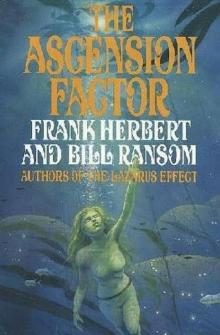 The Ascension Factor
The Ascension Factor The Heaven Makers
The Heaven Makers Children of Dune
Children of Dune Old Rambling House
Old Rambling House Dune
Dune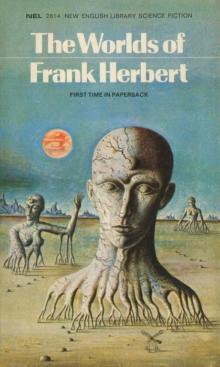 The Worlds of Frank Herbert
The Worlds of Frank Herbert The Jesus Incident
The Jesus Incident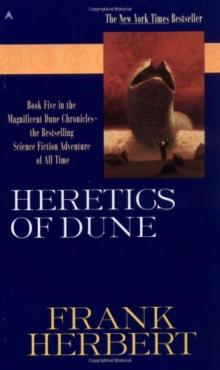 Heretics of Dune
Heretics of Dune Whipping Star
Whipping Star Dune Messiah
Dune Messiah Man of Two Worlds
Man of Two Worlds The Book of Frank Herbert
The Book of Frank Herbert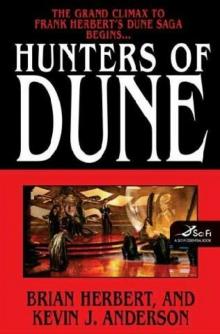 Hunters Of Dune
Hunters Of Dune The Tactful Saboteur
The Tactful Saboteur Soul Catcher
Soul Catcher God Emperor of Dune
God Emperor of Dune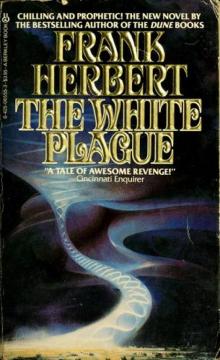 The White Plague
The White Plague The Green Brain
The Green Brain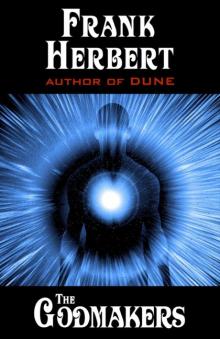 The Godmakers
The Godmakers Sandworms of Dune
Sandworms of Dune Destination Void
Destination Void The Dosadi Experiment
The Dosadi Experiment Eye
Eye High-Opp
High-Opp The Eyes of Heisenberg
The Eyes of Heisenberg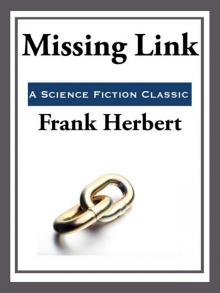 Missing Link
Missing Link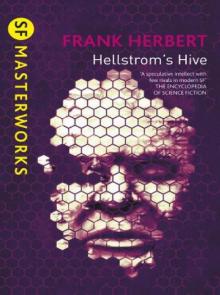 Hellstrom's Hive
Hellstrom's Hive Chapterhouse: Dune
Chapterhouse: Dune The Santaroga Barrier
The Santaroga Barrier The Dragon in the Sea
The Dragon in the Sea Operation Haystack
Operation Haystack A Thorn in the Bush
A Thorn in the Bush Four Unpublished Novels
Four Unpublished Novels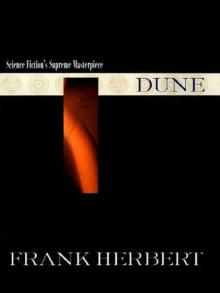 Dune dc-1
Dune dc-1 Jorj X. McKie 1 - Whipping Star
Jorj X. McKie 1 - Whipping Star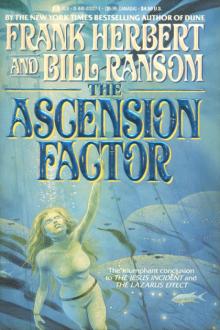 DV 4 - The Ascension Factor
DV 4 - The Ascension Factor Frank Herbert - Dune Book 4 - God Emperor Of Dune
Frank Herbert - Dune Book 4 - God Emperor Of Dune ChapterHouse: Dune dc-6
ChapterHouse: Dune dc-6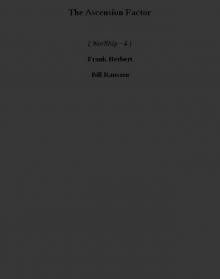 The Ascension Factor w-4
The Ascension Factor w-4 A Game of Authors
A Game of Authors Children of Dune dc-3
Children of Dune dc-3 Destination: Void: Prequel to the Pandora Sequence
Destination: Void: Prequel to the Pandora Sequence The Collected Stories of Frank Herbert
The Collected Stories of Frank Herbert Dune Messiah dc-2
Dune Messiah dc-2 Frank Herbert - Dune Book 5 - Heretics of Dune
Frank Herbert - Dune Book 5 - Heretics of Dune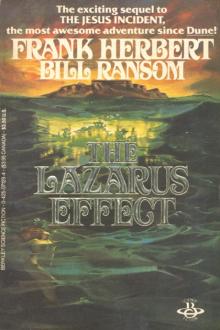 DV 3 - The Lazarus Effect
DV 3 - The Lazarus Effect The Jesus Incident w-2
The Jesus Incident w-2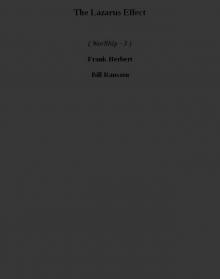 The Lazarus Effect w-3
The Lazarus Effect w-3 Frank Herbert
Frank Herbert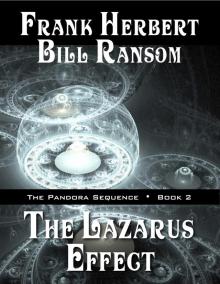 The Ascension Factor: Pandora Sequence
The Ascension Factor: Pandora Sequence Dune (40th Anniversary Edition)
Dune (40th Anniversary Edition) The Dosadi Experiment c-2
The Dosadi Experiment c-2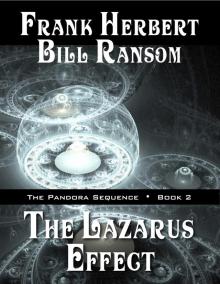 The Lazarus Effect
The Lazarus Effect God Emperor of Dune dc-4
God Emperor of Dune dc-4 The Pandora Sequence: The Jesus Incident, the Lazarus Effect, the Ascension Factor
The Pandora Sequence: The Jesus Incident, the Lazarus Effect, the Ascension Factor The Green Brain (v4.0)
The Green Brain (v4.0) The Heaven Makers (v4.0)
The Heaven Makers (v4.0) Heretics of Dune dc-5
Heretics of Dune dc-5